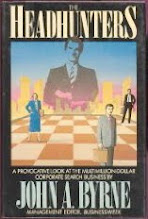There are three fundamental beliefs today that have also been used as "white lies" by many media executives who have failed to reckon with the vast changes that have roiled our business in recent years. These absolutes will free you into thinking very differently about the business.
1)
Print advertising will never come back. There are just too many options for advertisers today and too much pressure on advertising rates. In the so-called good old days, BusinessWeek, for example, lived in a cozy competitive world with The Wall Street Journal, Forbes, and Fortune. Now it must more actively compete with Yahoo Finance, MSN Money, AOL Money, CNBC, Reuters, Huffington Post, Slate, and thousands of other business sites. Never mind Google, behavioral targeting, everywhere and anywhere. Just as significant, most advertisers are lessening their dependencies on the intermediary--the media--to reach their target audience by going directly to them. One of the best places for entrepreneurs to get advice and help is American Express' OPEN site. It's as good if not better than anything published by traditional media in this space. Bottom line: Advertisers have learned to live with no print or far less print and they are not coming back.
2)
Online advertising will never offset those declines nor save print. There’s far too much competition online and far too much available inventory. In the past year, the competition and the excess inventory have put tremendous pressure on advertising rates. CPMs (the cost to reach 1,000 people) have plummeted just about everywhere. And the costs of an online ad are just a mere fraction of what they continue to be in print. We use to say we've traded analog dollars for digital dimes. Now it's more like digital nickels and it may soon be digital pennies. It takes a lot of them to make up a single dollar. And there's a hitch to scale online: Scale brings down CPMs. The larger you get, the lower your CPM is going to be. It's no wonder why there are no incumbent brands who have been able to solve this puzzle.
3)
Users will not pay for content, unless they’re convinced it has immediate and tangible value. Very little journalism meets that standard today. News journalism, unfortunately, has largely become a commodity. Do we really need 57 versions of a story on Bernie Madoff pleading guilty? Of course not. It's why much of the conversation about pay walls is moot. It may be true that media brands have no choice but to get more money from their subscribers, but it's going to be extremely tough to get people to pay for what they now get free. The genie is so far out of that bottle it will be impossible for her to get back in. I like what LinkedIn's
Reid Hoffman said recently about Rupert Murdoch's plans to put up a paywall: "I am sure that during the transition from horses to automobiles there were some people bemoaning the loss of horse transport."
Why are these absolutes important? Because if you believe in these three absolutes and you're in the media business, they can be used to liberate you. If not, each of them become little white lies that allow you to lead by incremental change. People convince themselves that print advertising will come back once the recession ends; that scale online will help them make up their lost revenue on the print side of the house; and that so many of their competitors will die that someday they'll get a fair price for their content. Forget it. These fundamental truths of our business tell us that nothing less than radical transformation will make the difference.
Agree? Disagree? Let me know.










